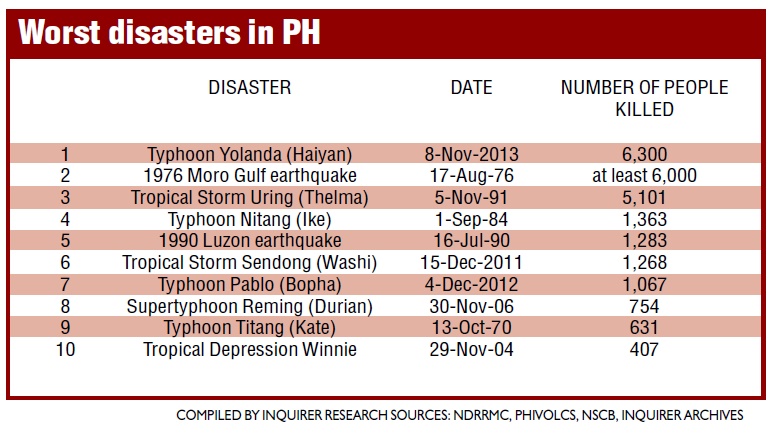OFFICIALS at the 12th Apec Energy Ministers Meeting in Cebu were asked to lend their voice to calls for an agreement on greenhouse gas emissions curbs at the upcoming United Nations climate conference in Paris.
“As a body that operates on consensus, it might be too much to ask for Apec to lend its voice that would call for positive actions from the Conference of Parties to the UN Framework Convention on Climate Change in Paris. It is worth making this appeal, however, considering the immeasurable cost of doing nothing and saying nothing,” Senator Loren Legarda said in an address to representatives at the meeting of Apec member-economies.
At the Apec meet in Cebu, the Philippines pushed vulnerability assessments on energy facilities of member-economies and the incorporation of information parameters and benchmarking in carrying out emergency response planning.
The aim is to identify major energy networks that may be compromised by natural hazards and improve their capacity to withstand disastrous events.
“Our experience with Typhoon Haiyan in 2013, whose intensity is unmatched in recent history, gives us crucial lessons,” Legarda said.
According to various data sources, the power sector suffered $155 million in damage due to Haiyan. Distribution utilities were the hardest hit, accounting for 76 percent of the total damage to the energy sector, causing disruptions in electricity supply to residential consumers and public buildings.
“This underscores the importance of building adaptability in the energy sector. Climate proofing the energy infrastructure has clearly become a necessity,” Legarda said.
In the Paris talks barely two months from now, representatives from governments, intergovernmental organizations, international agencies, NGOs and civil society will try to hammer out an agreement that will boost clean energy investments and spur a global transformation toward low-carbon development.
The agreement would ideally include measures to keep the global temperature from rising more than 2 degrees Celsius and ensure support for developing countries such as the Philippines to adapt to and mitigate the impacts of climate change on member economies.
Apec economies account for 55 percent of global energy output, but account for 60 percent of total energy consumption.
Legarda said Apec was a key platform that could bring together all 21 economies in finding sustainable and durable solutions to the region’s energy needs. Since energy fuels economic growth, Legarda urged closer public-private engagements and dialogues on the matter.
“Clearly, new and cleaner energy options need to be developed,” Legarda said. “Ministers, your excellencies, we can no longer address the sustainable development-energy nexus on an ad-hoc basis.”
In line with the Apec theme of inclusive growth, Legarda also noted the need to give remote areas access to electricity. Various international studies noted that 1.1 billion globally had no access to electricity. Asia accounts for 615 million.

Clean fuel and renewable energy need to be harnessed and development of micro grids has to be pursued in addressing energy access challenges, she stressed.
According to US studies, the Philippines still has some 246,000 megawatts of untapped renewable energy capacity. This is thirteen times the country’s current installed capacity.
“Open trade brings immense opportunities, but unless fair opportunities are shared with all, the prosperity that Apec aims to deliver becomes an empty promise,” Legarda said. “I therefore welcome Apec’s initiatives that will provide energy access to everyone, including those in remote communities.”
Officials, in their Cebu Declaration, agree that inclusive growth begins with making basic services available to all.
“Apec needs to focus on promoting the growth of the low-carbon economy as a means to create jobs and curb carbon emissions,” Legarda said. “Apec cannot afford to take half steps in its efforts to deliver clean energy to poverty stricken areas.”

